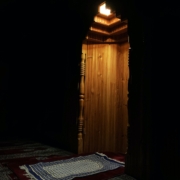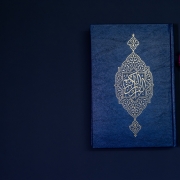Dreaming Sufism in the Sokoto Caliphate: Dreams and Knowledge in the Works of Shaykh Dan Tafa – Oludamini Ogunnaike
This article explores five remarkable works (currently in unpublished manuscript form) by ʿAbd al-Qādir b. Muṣṭafā (known as “Dan Tafa”) (1804–1864), a 19th-century West African Sufi scholar of the Sokoto Caliphate, to examine the ways in which dreams were (and are) theorized in the unique synthesis of Sufi, occult, philosophi- cal/medical, theological, and exegetical disciplines that characterized discourse about dreams and dream interpretation in Muslim West Africa on the eve of colonial con- quest. Concluding with a brief discussion of what these texts can tell us about Dan Tafa’s conceptions of cosmology, knowledge, and the human self, and the importance thereof for African and Islamic intellectual history, we will also consider the potential relevance of Dan Tafa’s work for the importance and onto-epistemological status of dreams in contemporary West African Sufi communities and attempt to understand why dreams have been and remain so important in these traditions.









